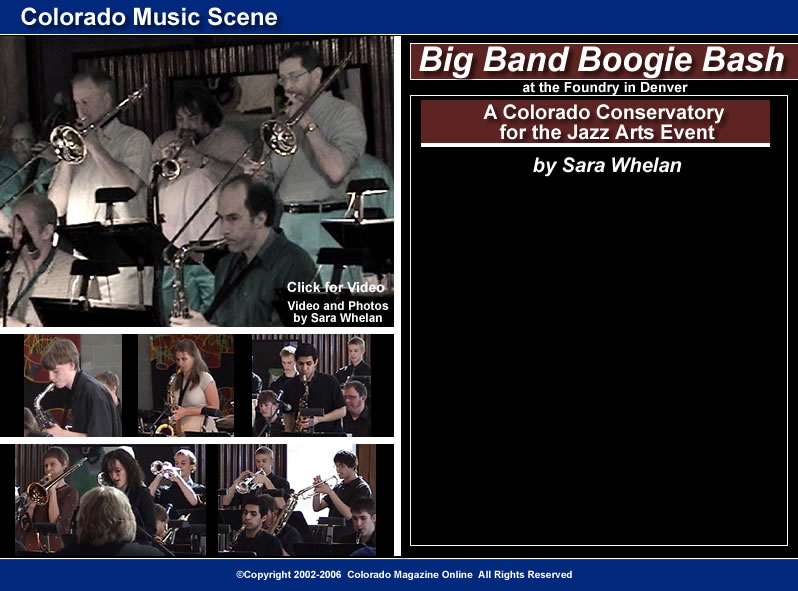

I don't say this to conjure pity, but rather to place the performance of the Colorado Conservatory for the Jazz Arts (CCJA) student musicians into perspective. On Sunday, April 9, I made my way down to the Foundry in Denver to attend the Big Band Boogie Bash, a fundraiser for this Denver nonprofit that specializes in teaching Denver's high school and middle school students the art of jazz. I expected that I would enjoy the stellar line-up of some of Denver's finest jazz ensembles: the Bob Montgomery Big Band, the Metropolitan Jazz Orchestra, Rumble Seat and the Big Band from the Lamont School of Music at Denver University. These are talents you can count on. But I wasn't sure what to expect from the DUkes of Lamont-an ensemble of CCJA's more accomplished students.
I know what you're thinking. Big band? Jazz? High school students? I know what you're remembering. A hollow auditorium, rubber soles squeaking against lacquered basketball court and the reverberating sound of off-tempo Benny Goodman as interpreted by the high school jazz band. Well, the DUkes of Lamont muffle the squeak of the gym floor completely.
"Some of these kids are ready for New York now," said Eric Gunnison, DU professor and director of the DUkes of Lamont ensemble. And, really, why shouldn't they be? CCJA is a unique collaborative of musicians. Denver's finest jazz artists, like Ken Walker, Paul Romaine, Al Hood and Greg Gisbert (to name a few), mentor Denver's up-and-coming middle and high school aged musicians. Students not only develop an ear for ensemble jazz performance, they get lessons in jazz history, theory, arrangement and composition, improvisation style and technique, along with a dose of music engineering and business.
It takes a village, they say, and drummer Paul Romaine started this one in 1999 with six students. Since then the roster has grown to more than 90 students who participate throughout the school year, working with mentors and ensembles once a week.
Like any village, this one is indoctrinating its youth to the culture. The culture of Jazz, which teaches the importance of performing as a group. "The kids learn how to work with people," said bass player and mentor Ken Walker. "They learn how to be more than the sum of the parts." And most importantly, they learn that "mistakes aren't important. It's the recovery."
These young musicians are learning this culture well-so well that recruiters reportedly show up to performances regularly and offer nearly full to completely full rides to the nation's leading universities.
As I walked out of the Foundry, feeling a distinct combination of envy and regret for my running back to Mozart, terrified by the too-complicated calculus of jazz, I began to realize how hard these musicians had really worked in order to sit down with each other and have fun. There was no genetic music faerie that had skipped my generation. There was no muse that didn't wave the wand in my direction. I didn't work at it. These young musicians and their mentors are working hard, and the results are impressive.
If
you'd like to learn more about CCJA,
visit their website:
 |
|